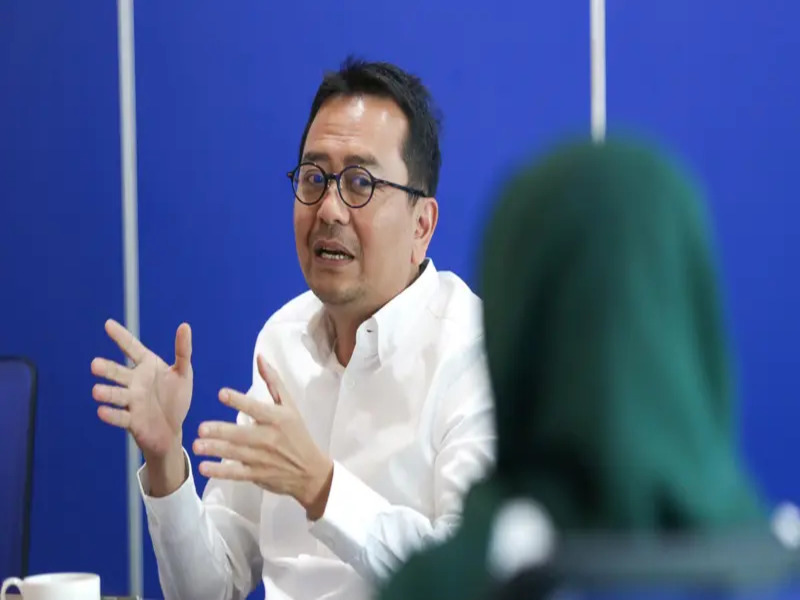
Independent Report – The ongoing debate over copyright controversy among Indonesian musicians has raised concerns among many parties. Chairman of the National Awakening Party (PKB), Syaiful Huda, urged that the discussion be guided by existing legal frameworks.
“We believe that, despite its shortcomings, this debate should be redirected to the existing legal framework. Specifically Law Number 28/2014 on Copyright. This way, discussions can be more constructive and not devolve into ad hominem arguments that target individuals. Thereby obscuring the core issue,” said Syaiful Huda on Monday, March 24, 2025.
As a former Chairman of Commission X of the Indonesian House of Representatives (DPR RI) for the 2019-2024 period. Huda emphasized that copyright regulations are clearly outlined in Law No. 28/2014. Additionally, Government Regulation (PP) No. 56/2021 governs the management of copyright royalties for songs and music.
“PP No. 56/2021 explicitly mandates that all parties using songs and music for commercial public services must pay royalties to the creator, copyright holder, or related rights owner,” he stated.
According to Huda, the regulation also specifies the types of commercial services required to pay royalties to copyright holders. Furthermore, it mandates that all royalty payments must be processed through the National Collective Management Organization (Lembaga Manajemen Kolektif Nasional or LMKN).
“Article 3, Paragraph (1) of PP No. 56/2021 stipulates that royalties must be paid by individuals to the creator or copyright holder of songs and/or music through LMKN,” Huda explained.
Also Read : Rezka Oktoberia Appointed as Deputy Secretary-General of the Democratic Party
Huda acknowledged that there have been complaints regarding the performance of LMKN. The formation of LMKN by the government has sparked controversy. As its functions might overlap with independent Collective Management Organizations (LMK) established by musicians.
“Additionally, LMK has been criticized for its lack of transparency, unclear data on commercial song or music usage. And also the requirement for copyright holders to pay 20% of their royalties to LMK,” he said.
Despite LMK’s inefficiencies, Huda argued that this should not justify the introduction of new regulations such as direct licensing. Which has recently become a hot topic. According to him, direct licensing has the potential to create an unequal relationship between copyright holders and performing artists.
“The discussion should focus on optimizing LMKN and LMK to ensure royalties are properly distributed to creators and copyright holders rather than creating new regulations. Outside the existing framework, such as direct licensing in performing rights,” he stated.
The dispute over copyright royalties gained attention after singer Agnez Mo was sued by songwriter Ari Bias for allegedly performing a song without permission. The case proceeded to the Commercial Court, where the decision in Case Number 92/PDT.SUS-HKI/CIPTA/2024/PN Niaga JKT.PST found Agnez Mo guilty of copyright infringement. She was ordered to pay Rp 1.5 billion in damages to Bias.
Following the ruling, Agnez Mo expressed her disappointment, arguing that she had already paid royalties through LMKN. The controversy escalated, leading to a divide among musicians into two opposing factions: the Indonesian Composers Alliance (Aliansi Komposer Seluruh Indonesia or AKSI) supporting Ari Bias, and the Indonesian Sound Vibration (Vibrasi Suara Indonesia or VISI) siding with Agnez Mo.
AKSI is led by musicians such as Ahmad Dhani and Piyu from Padi Reborn. While VISI includes well-known Indonesian artists like Armand Maulana, Ariel Noah, and Bunga Citra Lestari (BCL).
As the debate continues, stakeholders are urged to focus on strengthening existing legal mechanisms rather than introducing new licensing models that could lead to further legal uncertainty.
Also Read : BRICS Set to Challenge Dollar’s Stablecoin Dominance with Digital Gold